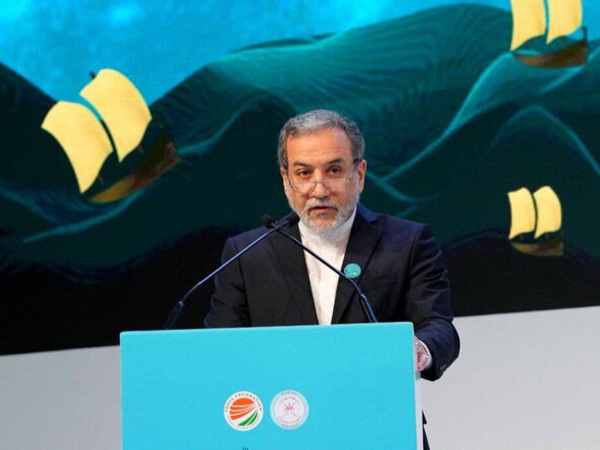Iran says the future of the Indian Ocean must be decided by its own nations rather than shaped by external powers as Tehran tries to gain further control in the key waterway on its southern coast.
“We cannot allow global geopolitical rivalries to determine the future of this region,” said Foreign Minister Abbas Araghchi at the 8th Indian Ocean Conference in Muscat on Sunday.
He said that some extra-regional actors are exploiting political and security vulnerabilities to disrupt natural cooperation between nations in the region.
“Decisions about the fate of the Indian Ocean must be made by the countries in the region and for the benefit of its people.”
For centuries, the Indian Ocean region has been an important trade arena, stretching from Africa’s eastern coast to Australia’s western coast. It remains critical today for the security and stability of shipping lanes and trade routes.
According to the Carnegie Endowment for International Peace, the area, home to 33 nations and 2.9 billion people, accounts for over one-third of the world’s bulk cargo traffic and two-thirds of the world’s oil shipments and ensures global access to food, precious metals, and energy resources.
Araghchi also spoke about the strategic significance of Iran’s southern coastline, describing the Makran coast as an opportunity that must evolve into an economic hub for both Iran and the region.
Last month, Iran’s government spokesperson announced an ambitious plan to relocate its capital to the southern coastal region of Makran, aiming to address Tehran’s persistent issues of overpopulation, power shortages, and water scarcity. However, the proposal was later denied following extensive criticism.
Araghchi also added that Tehran plays a significant role in combating piracy, drug trafficking, and other threats to trade routes insisting that regional security should be maintained through cooperation among Indian Ocean countries.
His comments of promoting maritime security are contested by incidents like the 2019 tanker attacks near the Strait of Hormuz -- attributed to Iran by the US, UK and Saudi Arabia -- and its seizure of vessels such as the Stena Impero in 2019 and Hankuk Chemi in 2021, which were seen as politically motivated.
Iran-backed Houthis of Yemen are behind most of the attacks on ships in the Red Sea, while Tehran has time and again threatened to close the Strait of Hormuz. Iran was also implicated in incidents like the Israeli-owned Mercer Street tanker attack in 2021.
